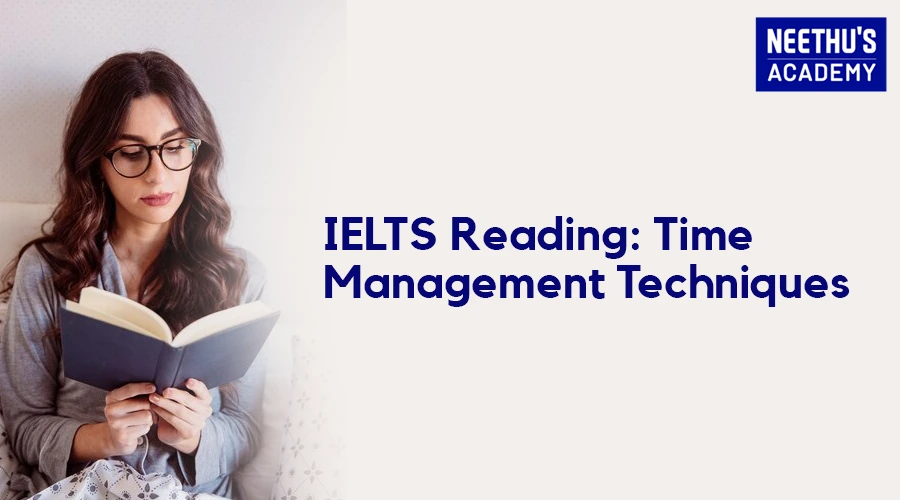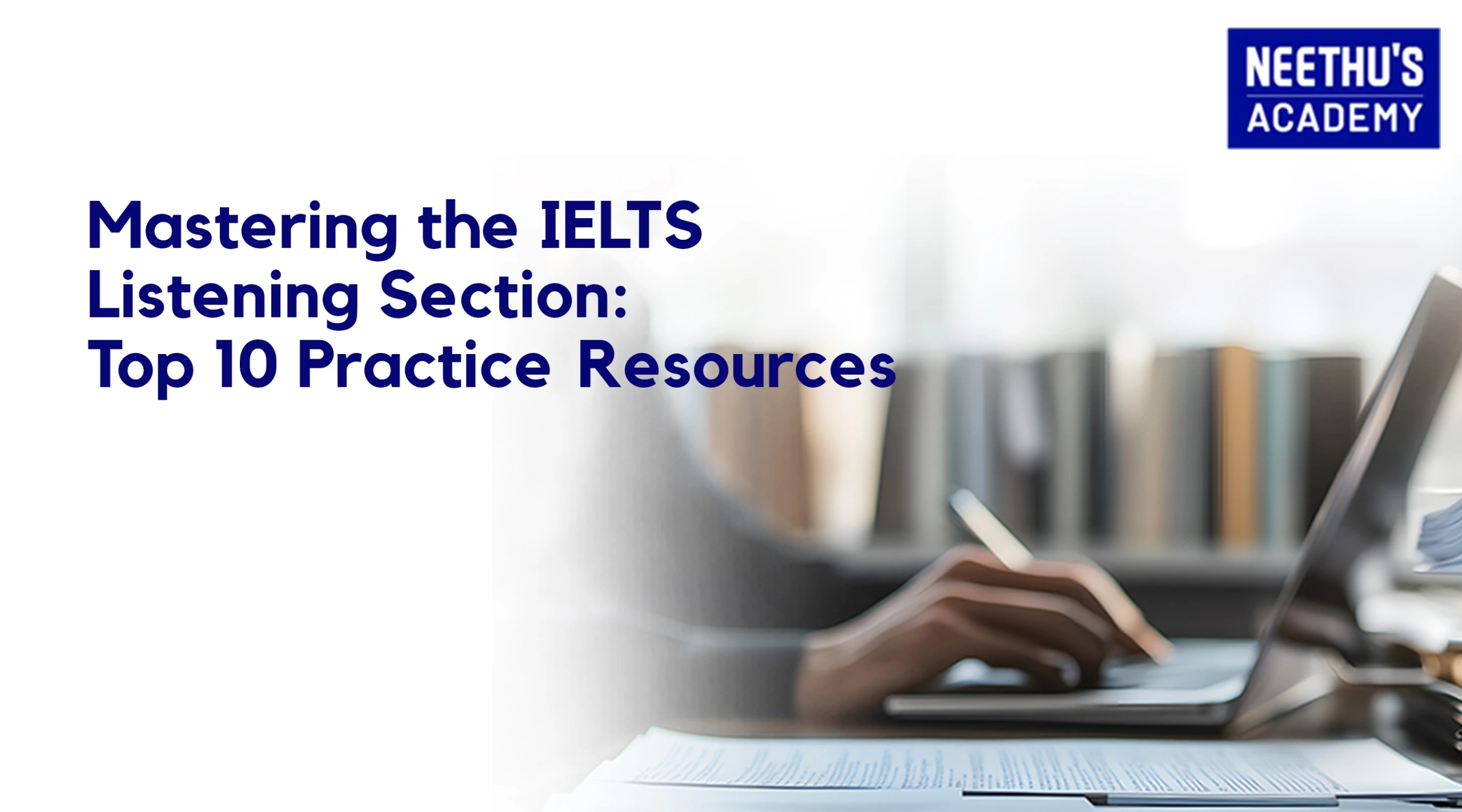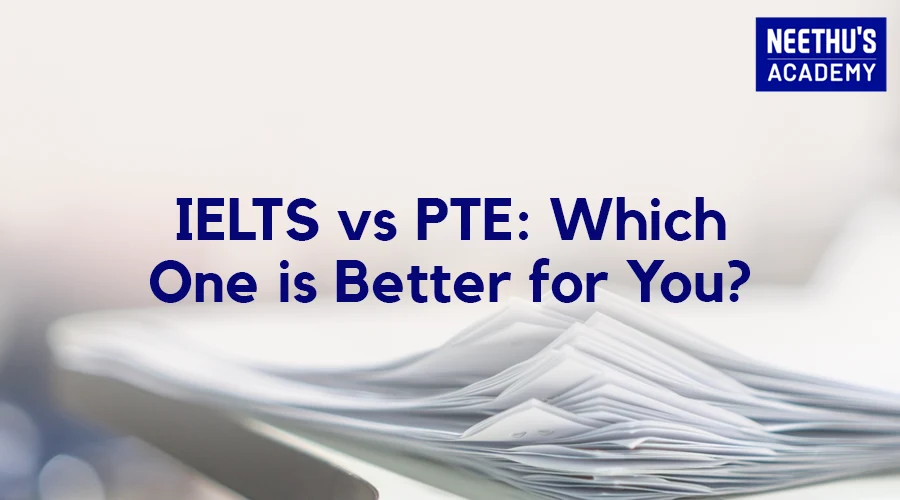Read Smart, Not Hard: Top IELTS Reading Time Management Techniques
A good score in IELTS Reading is something more than good comprehension ability; it also requires one to manage time. With only 60 minutes to answer 40 questions, the student must therefore pace themself to cover all the passages and questions correctly. In this blog post, we shall discover top IELTS Reading time management techniques , and therefore confidently complete the section and improve his chances of getting Band 8 or higher.
The IELTS reading section tests the ability of a candidate to read complex texts quickly. Three passages make it hard not to get caught in the trap of over-reading or spending too long on a single question. Smart time management strategies can change the difference between a high score and an average score. Let’s now break down the essential techniques that will help you finish the IELTS Reading section in time and increase your accuracy.
Overview of the IELTS Reading Section
The IELTS Reading section consists of three passages, which become increasingly difficult. You will have various kinds of questions: multiple-choice, matching headings, completing sentences, and identifying information (True/False/Not Given). For IELTS Academic and General Training, you are required to answer 40 questions in total, but the content of the passages is different.
- Academic Reading consists of passages mainly from research-oriented or scholarly texts with complex vocabulary and concepts.
- General Training Reading: It consists of general sorts of passages from magazines, advertisements, or notices.
Understanding this structure will further help to place your precious time for each passage, which is really important.
Common Time-Related Challenges
Many test-takers tend to find a problem with the IELTS reading part because of the time constraint that strictly forces them to finish. The problems include:
- spending much time on the passage of the question.
- Re-reading the same passages multiple times as they have not made much sense.
- Doing some catch-up on unfamiliar vocabulary.
Handling such requirements with excellent time management skills might help to maintain control of the section and even provide a score.
Essential Time Management Techniques for IELTS Reading
Skimming and Scanning
Skimming and scanning are two of the most important skills that will help you find information without reading every word in detail.
Skimming: This is reading fast to get an idea of what each paragraph or section is talking about. Practice skimming by reading only the first and last sentences of each paragraph to get an idea of the structure and key points.
Scanning It allows one to scan all the information rapidly to search for specific information. For example, if a question seeks a particular date, number, or name, scanning allows picking out the information without reading the whole text.
Tip for Practice: Practice all these skills on easier newspaper articles or paragraphs before reading IELTS-level pieces. Regular practice can certainly save those precious minutes during actual IELTS exams.
Tackling Questions in Order of Difficulty
Not all questions are equally difficult. In fact, answering the easier ones first may boost your score and give you the confidence to save time.
Identify Easy Questions: Questions such as “matching information” or “synonyms” might be quite easy to answer and you can get them done quickly.
Save complex questions for later: True/False/Not Given or Yes/No/Not Given questions often require close reading and are time-consuming. Do them last so that you are not wasting too much time initially.
Setting a Time Limit per Passage
This way, you will be able to spread your time evenly on all three passages. Try to follow this guideline:
First Passage: Spend about 15 minutes on this passage because it is usually the easiest.
Second Passage: Approximately 20 minutes; moderately challenging.
Third Passage: Use the remaining 25 minutes, which tends to be the most difficult.
Practice Tip: Use a timer during your practice exercises, and note how long you use up on each section so that you will be automatically inclined to pace yourself within a certain amount of time as you become accustomed.
Focus on Keywords and Synonyms
These are the words or phrases of the question which would enable you to find the relevant information in the passage. Generally, IELTS rarely uses the same word or phrase in the question and the passage. Instead, one needs to focus on the usage of synonyms and phrases rewritten for emphasis.
Keywords: Underline the keywords in the question before you read the passage.
Match Synonyms: Now that you have discovered a section that contains information relevant to your question, look for synonyms rather than exact words because that way you ensure your answers are correct.
For example, whereas it is written “increase in population,” you may use “population growth” or “expansion in population.”
Managing Unfamiliar Vocabulary
You may get bewildered by unfamiliar words. However, learning how to get around them will conserve your time and give a boost to your confidence.
Use Context Clues: If you know a word, try working out the meaning from other sentences in the passage. At times, the surrounding context supplies you with enough information that you can make an informed guess.
Focus on Understanding the Main Idea: Do not feel you have to grasp every word. Focus more on understanding the overall idea of the passage because that is often enough to answer the questions appropriately.
Practice Tip: For a practice session, ignore any unfamiliar word, and still, try to understand the passage. It will build toughness and confidence.
Practicing with Timed IELTS Mock Tests
Role of timed practice
This mimics actual exams and conditions, enabling you to work on managing your time, which is an essential factor just like during the real test-taking session of IELTS Reading. It enhances your speed and allows you to figure out where to improve.
Mock Test Resources
Official IELTS materials and resources of the best IELTS coaching centers would be appropriate. Most coaching centers give you timed mock tests to simulate the pressure and conditions of the IELTS exam which would be an excellent practice for time management skill development.
Additional Tips for Effective Reading Time Management
Read the questions before reading the passage
Reading the questions before the passage helps you know what to look for, and that way, it becomes easy to find relevant information in the passage.
Keywords: Underline the keywords of each question so that in reading the passage, you quickly find the information.
Quick Reference: Reading the questions, first of all, can give an idea of what to look for; then you can match them much easier.
Skip Difficult Questions Initially
If you feel that a question is too difficult or time-consuming, move on and come back to it later. This technique prevents you from wasting time on one question and allows you to maintain momentum.
Mark Questions to Return To: Make a quick note beside difficult questions so you can revisit them after completing the rest of the passage.
Keep calm and cool under pressure.
Being cool-headed is one of the most important skills of clear thinking and effective time management. If you are in a hurry, then you are more likely to err. So, if it is needed, take some deeper breaths and relax and think.
Practice Tip: Take one or two deep breaths before each paragraph. This simple practice will keep you composed and make your time management easier.
Benefits of Expert Coaching
- Customized Feedback: The coaches will test your strengths and weaknesses and provide you with insights and strategies in which you are capable and lacking in time management.
- Simulated Exam Conditions: Mock tests under simulated exam conditions prepare the student for the real experience, hence building familiarity with a decrease in anxiety.
- Access to Resources: Coaching centers usually have the facility of having resources such as past papers, practice questions, and even timed tests under actual examination conditions to practice.
Conclusion
Time management is the skill that is likely to complement one well in the IELTS Reading section. Doing skimming and scanning, answering questions in an order of increasing difficulty, using time limits, focusing on keywords, and managing unfamiliar vocabulary would get one through this section with ease and a higher score. Also, take timed mock tests, professional coaching if one decides to do it, and remain cool under pressure. With persistent practice and devotion, you will be bold enough to conquer IELTS Reading to attain Band 8 or higher.
Frequently Asked Questions





